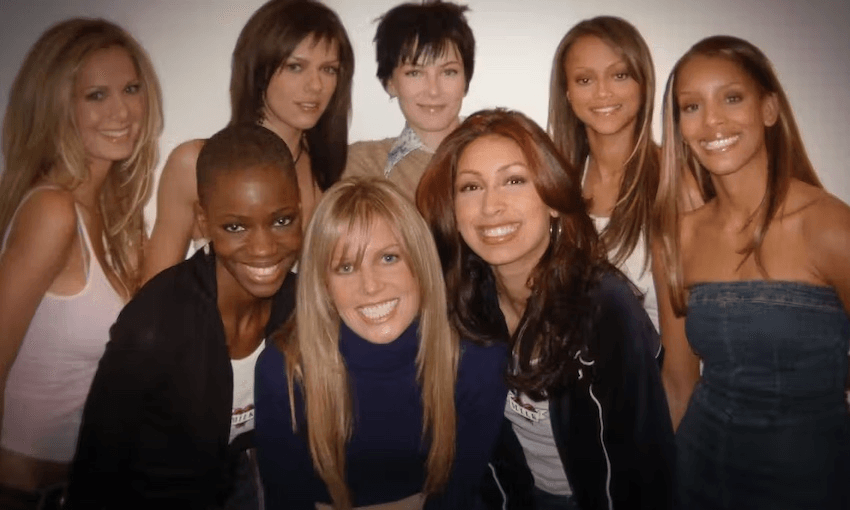Silly reality show? Sure. A case study for evidence-based relationship science? Okay! Holly Dixon analyses the relationships of Married at First Sight Australia.
Married at First Sight is a microcosm of what we all experience in interpersonal relationships, albeit at a concentration many of us will not have experienced. The intensity of the MAFS experiment ensures participants’ attention is keenly tuned in to their interactions with their spouses. Participants are forever questioning: Are the right for me? Do they meet my needs? Do they respect me? Can I trust them?
If these questions sound familiar to you, it’s probably because you’ve asked yourself these questions in your own relationships. Perhaps the appeal of watching MAFS is seeing these audacious guinea pigs try to find answers to these important questions, therefore giving us clues about how to navigate our own relationships.
In order to help you extract key lessons from MAFS, we’re analysing specific interactions using evidence-based relationship science. So, just as the MAFS couples get expert input, so do you!
Let’s look at C-bomb Susie, for example.
While Bronson (perhaps justifiably) dropped the first C bomb of MAFS 2019, John Aiken dropped one of apocalyptic proportions when Susie and Billy joined the experts on the couch for the first time: Contempt.
You might recall Susie and Billy seated on the commitment ceremony couch, facing the experts ready for a brief bit of counsel. They’d been together a week by that point, and Billy admitted it’d been a bit of a rocky start: Susie’s father told him he wasn’t her type, which Susie rather indifferently acknowledged was “unfortunate”. Susie then launched into an overwhelming spate of verbal aggression indicative of contempt, while everyone in the room squirmed, unable to contain their shock over the cruelty of Susie’s comments and her lack of self-awareness.
Susie’s contemptuous behaviour is one of four key signs that a relationship is headed for disaster. Research has shown that if contempt is present in a relationship, it’s time to shape up or ship out. But what does contempt mean in relationships and how could Susie have avoided it?
Contempt is when you – consciously or not – behave in ways that say, “I am better than you. You are lesser than me”. Actively communicating that you are disgusted with and feel superior to your partner are signs of contempt. Further tell-tale signs are ridicule, snarky humour, finger-pointing and eye-rolling.
Not only does contempt lead to a souring of the relationship and understandably worse psychological health, it puts individuals’ physical health in jeopardy. For instance, couples who display more contempt in their interactions with each other are more at risk of infectious illnesses, as the body’s immune system is less responsive when under stress.
Contempt usually develops when we harbour long-standing negative feelings towards our partner, and gradually erodes the bond that we have with them. Left unchecked, contempt severs any hope of a secure and fulfilling relationship.
Despite only being together for a week at the time of the C bomb, Susie exhibited contempt precisely: She disrespected Billy, attacked his character, and rolled her eyes to show her disdain. Moreover, Susie showed no remorse when admitting to calling Billy “too small”, “strange”, and not “ballsy enough”. And, when asked why she thought she wasn’t having a good time with Billy, she – astonishingly – felt it appropriate to say that it was because Billy “stares”, is “very awkward”, and makes her “very uncomfortable”.
What could Susie have done differently?
Susie needed to reframe the way her concerns were expressed. Research shows that, in order to work through contempt, couples need to work at building a friendship founded on respect and admiration. Instead of saying Billy was “too” this and “not enough” of that, Susie could have acknowledged what she did appreciate about him. Had Susie attempted this, Billy would likely have loosened up and felt safer to be himself. Not feeling “psycho in love” with someone within a week doesn’t spell doom for a relationship, but only focusing on the things they are doing wrong does.
Susie also needed to take ownership of, and better manage, her emotions and behaviours. She needed to realise that Billy was not making her feel things, but that control of her feelings resides in herself. In particular, she needed to realise that her past experiences, expectations and personality characteristics shape the way she perceives relationship interactions and then responds to them. Sadly, her inability to see this and to actively manage her emotions destroyed her ability to tune in to and show any empathy towards Billy.
This is arguable though. Susie’s contempt may actually have been a symptom of deeper problems with their relationship. Billy’s eagerness to be a good partner may have prevented him from showing up in a way that was authentic and real, and this may have been the root cause of Susie’s contempt.
While we might have liked Susie to have had a more supportive and constructive dialogue, relationships are a two way street. It’s entirely possible that Billy is at least partly responsible for their relationship friction. After all, we only get to see what the producers want us to see.
Maybe, just maybe, marrying a stranger with no indication of whether your values match, whether they attune to you emotionally, and whether you’re physically attracted to each other isn’t the best way to ensure relationship success? And maybe the most important lesson to take from Married at First Sight is what not to do in your own relationship.



